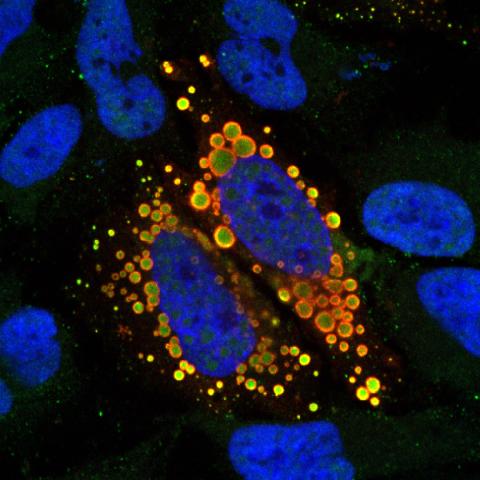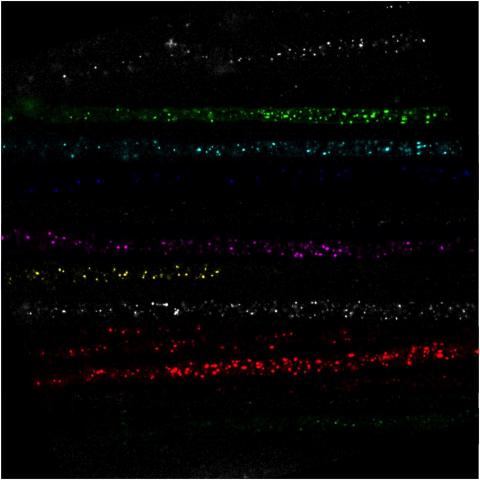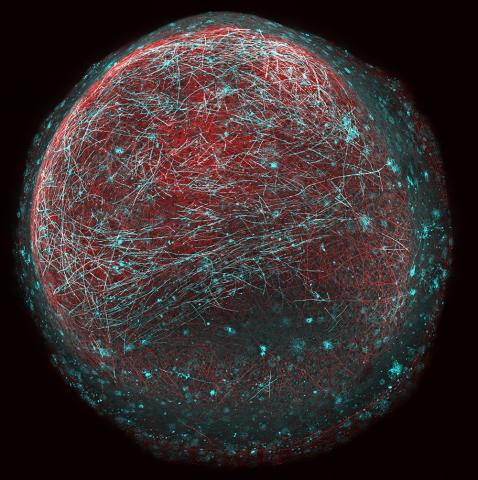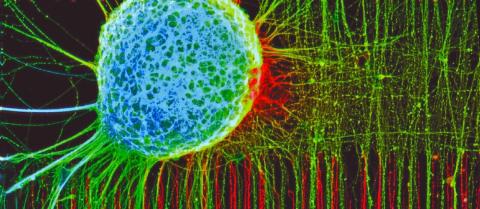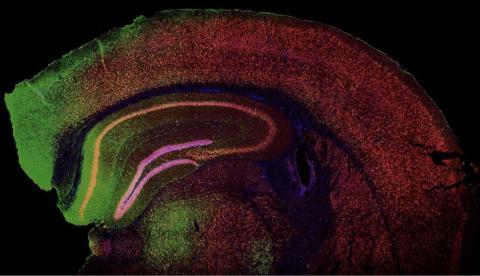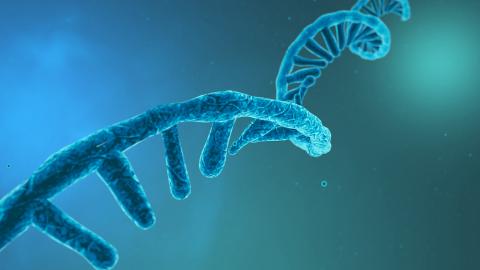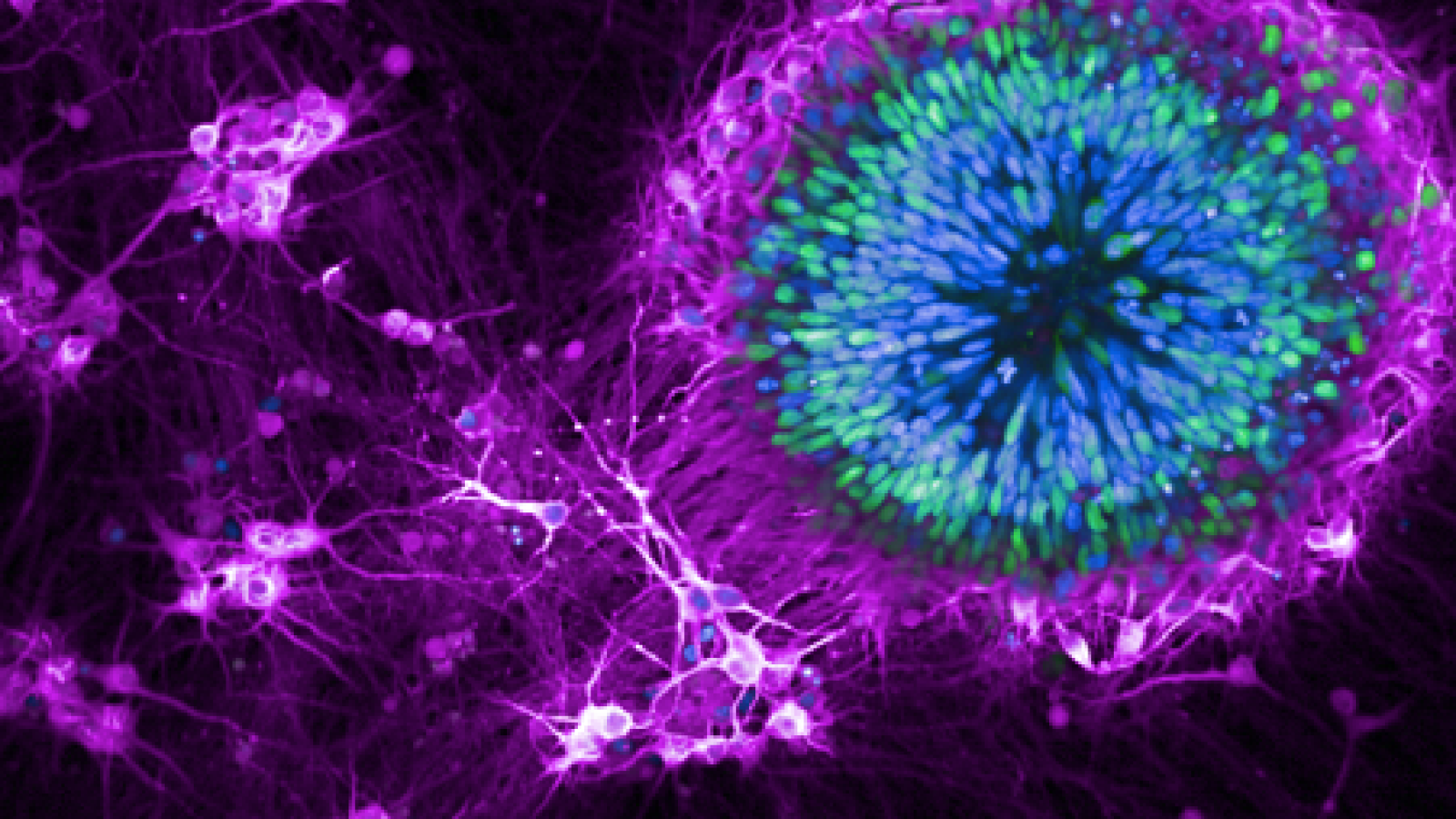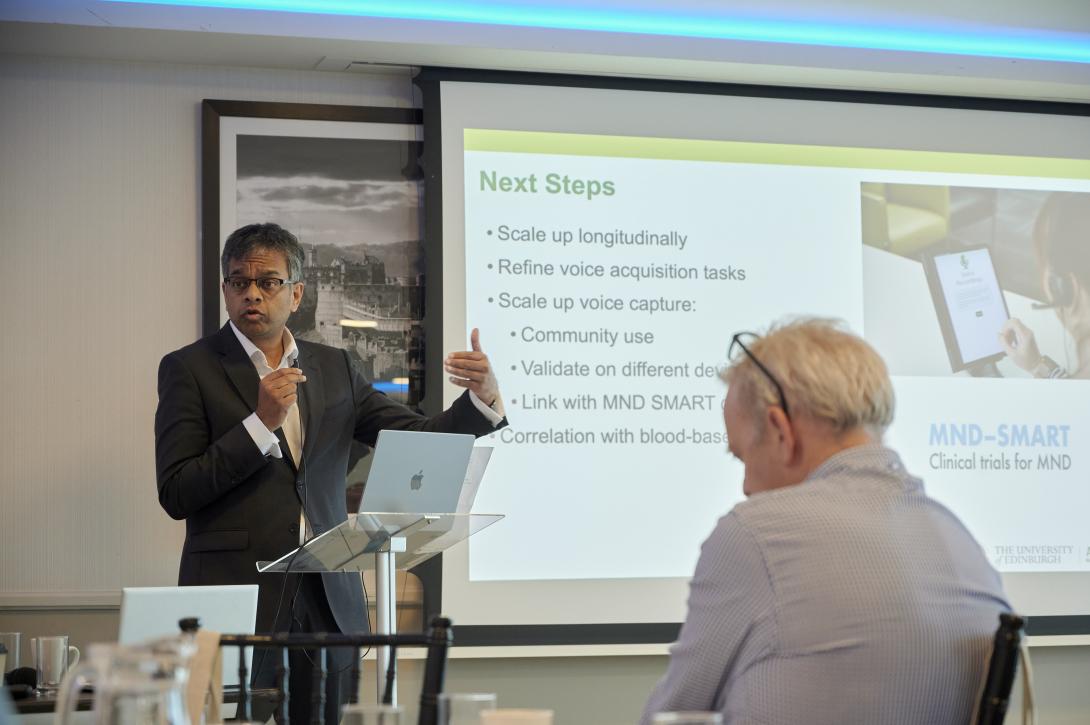
Prof Siddharthan Chandran presents at the MND-SMART annual meeting.
Credit: Maverick Photo Agency
Amyotrophic lateral sclerosis (ALS), the most common form of MND, is a neurodegenerative condition with no known cure. Most cases arise sporadically with uncertain aetiology pointing to a contribution from environmental factors and polygenic risk. Approximately 10-15% of individuals have autosomal dominant disease, with C9ORF72 repeat expansion, SOD1, TARDBP and FUS mutations accounting for the majority of genetic cases. More than 95% of all cases, excluding SOD1, converge on a common pathology characterised by nuclear clearance and cytoplasmic accumulation of the RNA-binding protein TDP-43 protein (encoded by TARDBP).
The MND thematic network aims to uncover the pathways leading to motor neuron degeneration and exploit reverse translational approaches to identify new biomarkers and translatable therapeutic targets. By leveraging expertise spanning genetics, RNA biology, proteostasis, deeply clinical phenotyped registries, bioresourcing, and clinical trials, the theme integrates patient-derived insights with innovative disease models. MND network members aim to build a streamlined research pipeline conducive for translation of mechanistic understanding into evidence-based clinical trials, and where clinical trial data can dynamically inform discovery science. Knowledge gained from MND may illuminate related TDP-43 proteinopathies like frontotemporal dementia and Alzheimer’s disease.
The breadth of expertise across the theme, connection to the innovative MND-SMART trials platform and the unique Scottish MND register (CARE-MND), along with the UK DRI Biomarker factory and industry links (AviadoBio) makes the theme uniquely placed to tear down the knowledge barriers that are hampering the development of effective therapies for MND.
The key priorities of the MND Thematic network include:
- Elucidating disease heterogeneity using molecular and cellular biology
- Understanding RNA homeostasis dysregulation
- Generating robust TDP-43 pathology models
- Biomarker discovery
- Bidirectional translation between preclinical and clinical studies
Labs
